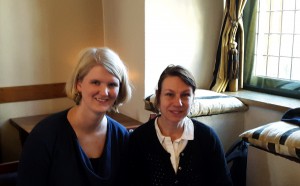The legal prostitution has rendered Amsterdam a trafficking magnet. Many fall victim to crime and a new prostitution legislation is being discussed. In recent years, several people have been charged with sex purchase from underaged. However, a sex purchase act is still far away.
Realstars has previously visited Holland, in our work to create interchange with different organizations. The purpose has been to strengthen the focus on demand, and in the long run to spread the Swedish Sex Purchase Act. In February, it was time for another visit.
Holland is a country which stands out, regarding trafficking, due to its liberal prostitution legislation. The law, which was introduced in 2000, has made the sex purchase market grow and allows pimping. The pimp gets a license and is expected to follow the rules that exist around prostitution. However, different from those in prostitution, they do not need to pay any tax. People in prostitution are called ”sex workers” here and it is regarded as a profession.
The impression I get of Holland in the year of 2016, is a country where many myths flourish and much is contradictory. Prostitution is not seen as a problem, yet it needs to be regulated and controlled. The rules differ among cities and municipalities, since politicians have been unable to agree on a new prostitution legislation.
People I talk with have varying views: trafficking is something to oppose, but the women in prostitution in the windows of the Red Light District are something else — a part of Amsterdam as a tourist town. At the same time, the police are active in the Red Light District to identify victims of trafficking. Statistics show, that during 2014, 1561 victims of trafficking were in contact with a coordination center against trafficking, of which 39 were 14 years old. 179 were between 15 and 18 years old.
In Amsterdam, victims of trafficking get a reflection period of three months under which they can get support and decide if they wish press charges and go through a lawsuit. Officially, the City of Amsterdam acknowledges the sex trade’s connection to criminal activity. The municipality has since 2005 been buying window spaces used for prostitution where the contracts have expired. Thus, they have been able to gain control and limit the trade to a smaller geographical area.
Those are steps in the right direction. At the same time, prostitution via escort is also common, according to a few young men I speak with. They say there is nothing strange about that, it is seen as normal. It is legal, after all, they point out.
Small steps with the focus on the sex buyer
During my visit, I meet with the organization Centre against Child Trafficking and Trafficking (CKM) that operates different projects against trafficking and the exploitation of people. I meet Annemarie Heeringa who works at CKM. She tells me about the organization’s work to support victims, as well as about a trend where several sex buyers have been convicted for sex purchase from children. It turns out, that it is the actual, objective age of a person that determines whether the person is a child, and it makes me think of what the protection of children looks like in Sweden today. In Sweden, it is the buyer’s estimation of the child’s age that matters.
According to Dutch law, perpetrators are to be sentenced to imprisonment, but in reality sentences often lead to community service. From October 2000 to June 2015, 177 men were suspected of having purchased sex from an underaged person. 61 of them were sentenced. During the first half of 2015, there were two large cases of trafficking. 72 men were suspected of purchasing sex from an underaged, and around 30 of them were sentenced.
Annemarie Heeringa tells me that the municipality of Groningen is looking into criminalizing or penalizing those who purchase from the illegal prostitution market. She regards it as logical, and as a step in the right direction toward working against demand, and in the long run get a more comprehensive prostitution legislation.
Prostitution at hotels in Amsterdam
I also visited hotels and talked about RealStars’ campaign Hotels Against Trafficking. Also among hotels I find that there are several views and approaches around. Many of the smaller hotels found in the Red Light District, seem to have a policy against prostitution in the rooms. There are signs saying ”guest only” and ”no escort”. A woman working at a hotel agency, claims it is important for many of the smaller hotels’ reputation not to allow prostitution. Among the larger hotels, she says, there is a tendency to turn a blind eye to escorts in the rooms. One of the larger hotels I speak to claim to have changed their policy, as earlier they would call for an escort on request, now they no longer do that; guests have to call themselves.
It is odd to visit Amsterdam with ”Fair Sex” as a beacon. People think very differently about sex purchase here. A very common reply I get when bringing the subject up is ”we have nothing against prostitutes”. That, to me, shows the extent to which the blame is put on those who live in prostitution, and how little focus is put on those who buy sex — even though purchases of trafficking victims occur every day. Realstars are met with interest from several people I meet, and I share our working methods in Sweden and for Fair Sex with them.
Small steps in the right direction.
Malin Roux Johansson
Translated from Swedish by Saga Norrby
‘




